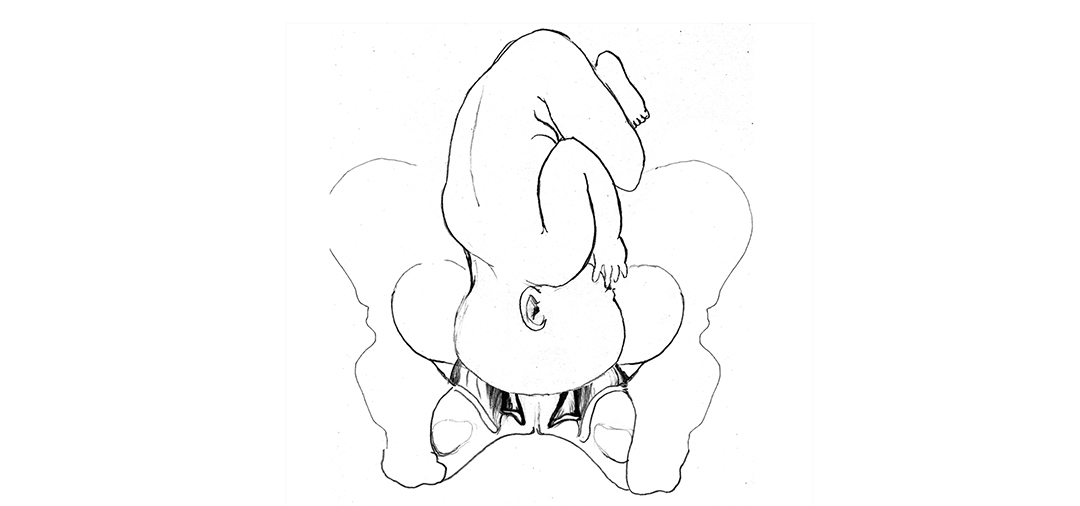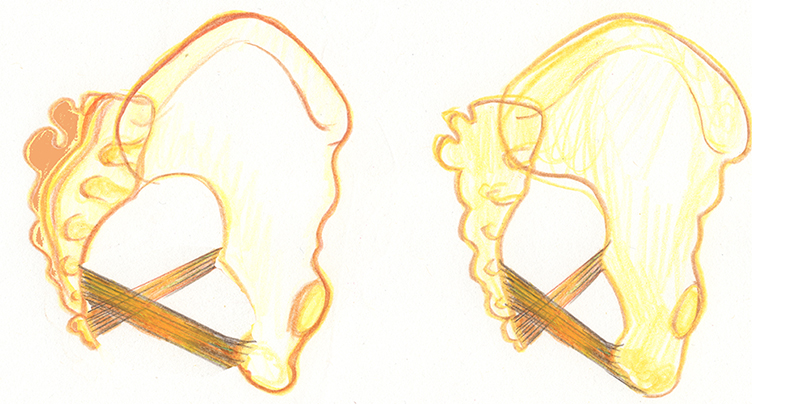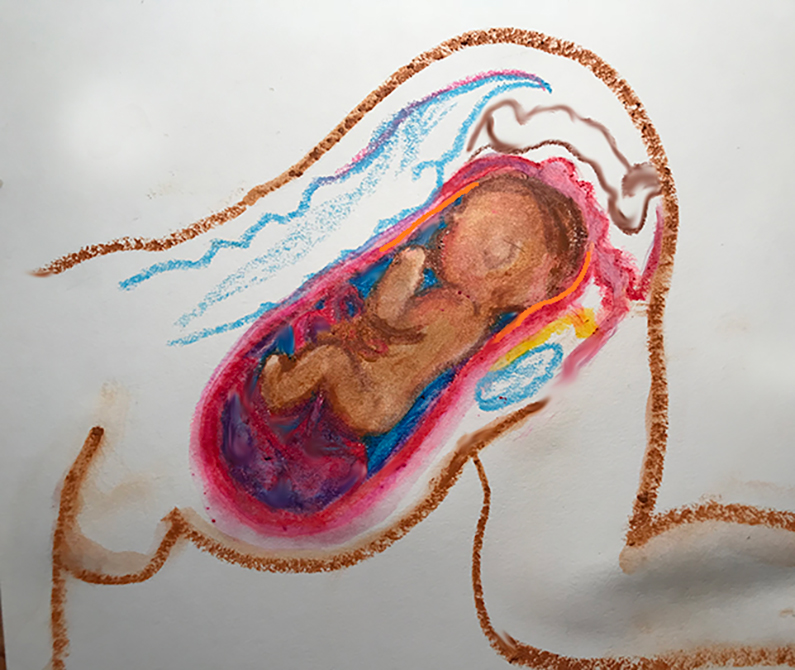Right Obliquity

Right obliquity refers to a normal shape of the human uterus. With obliquity, or angling, to the right we see a steeper side to the uterus on the right and a more round side on the left. A baby lying along the right side of the uterus would then have a straighter back. A baby […]
Fetal Engagement from the Right

Last week I mentioned the effect on babies from entering into the pelvis from the right side. Some babies take longer to engage and some need to rotate before they can engage. This seems to have to do with head circumference and whether baby can slip into the pelvis or is waiting above the symphysis, unable […]
VBAC Detective Response

Last week, a woman seeking vaginal birth after a previous cesarean (VBAC) asked whether to share Spinning Babies® Parent Class video with her doula. She said, “I am concerned that while I am doing everything I can to implement Spinning Babies knowledge and get the baby properly positioned, that my birth attendants will not be able […]
Birth Positions – Monthly Update

Birth Positions – Which One Does What? Spinning Babies® has introduced a new way of choosing birth positions to a wider reach of pregnant parents and the birth care providers who serve them. All-fours (hands-and-knees, or knee-elbow as shown below) has been a favorite position in the natural birth world. Today German researchers include an all-fours […]
VBAC Detective

One of my joys in being spatial with birth observation skills is being asked to be a “Birth Detective”. Parents often want to know why a previous birth was difficult. Here’s a woman planning for a vaginal birth after a previous cesarean (VBAC). What can you identify as potential issues and potential solutions which her […]
More Cervical Lip Solutions

This week is Part 2 of our discussion on the potential of Dynamic Body Balancing techniques in caring for a labor with a cervical lip. Read Part 1 here. Releasing a Cervical Lip Body balancing techniques specific to releasing a cervical lip include Forward-leaning Inversion through one contraction. See guidelines for safety and medical contraindications […]
